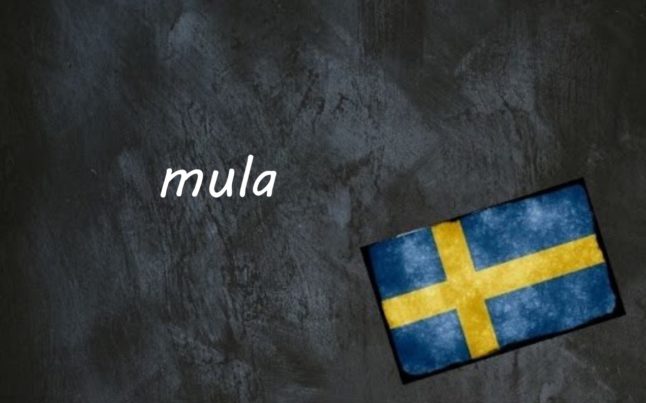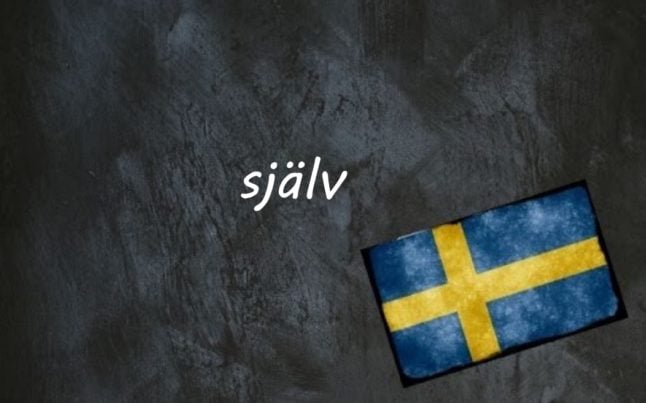There’s a long-standing linguistic saying that Inuits have 50 different words for snow – the truth of this phrase is debatable, but what can be said for certain is that Swedes have lots of different words for mula.
Mula does not have a direct English translation – it is best described as the act of rubbing snow into someone else’s face. It is also the Swedish word for a mule (the offspring of a female horse and a male donkey) but this article will discuss the former definition.
- Don’t miss any of our Swedish words and expressions of the day by downloading The Local’s new app (available on Apple and Android) and then selecting the Swedish Word of the Day in your Notification options via the User button
In a questionnaire carried out in 2006 by Språket – a language programme from Sveriges Radio, Sweden’s public service radio station – reporters discovered that Swedes have 95 different words for the act of rubbing snow into someone’s face.
Of the 6,000 respondents to the questionnaire, a clear majority answered that they use the word mula when describing this action, although there still were clear regional differences in other words for mula.
Gotland – Sweden’s largest island, lying to the east of the Swedish mainland – is one outlier, where respondents were more likely to say bryna than mula. Värmland, in west central Sweden, is another outlier, with the majority of respondents there most likely to say kryna.
Other popular alternatives to mula were purra and pula, as well as some less common, but entertaining words such as snötvätta (snow wash), snöbada (snow bathe), snödoppa (snow dip) and snödöpa (snow baptise).
Swedish-speakers in the Finnish regions of Uusimaa (Nyland in Swedish) and Ostrobothnia (Österbotten in Swedish, Pohjanmaa in Finnish), also use the word pesa – a Swedified version of the Finnish word for “wash”, pestä.
There you have it – mula – the word you never realised was missing from your snow vocabulary.
Example sentences:
Vill du leka snöbollskrig med oss? Nej, ni kommer bara mula mig!
Do you want to have a snowball fight with us? No, you’re just going to rub snow in my face!
Tror du det fanns en mula i stallet när Jesus föddes?
Do you think there was a mule in the stable when Jesus was born?
Villa, Volvo, Vovve: The Local’s Word Guide to Swedish Life, written by The Local’s journalists, is available to order. Head to lysforlag.com/vvv to read more about it. It is also possible to buy your copy from Amazon US, Amazon UK, Bokus or Adlibris.



 Please whitelist us to continue reading.
Please whitelist us to continue reading.
Member comments